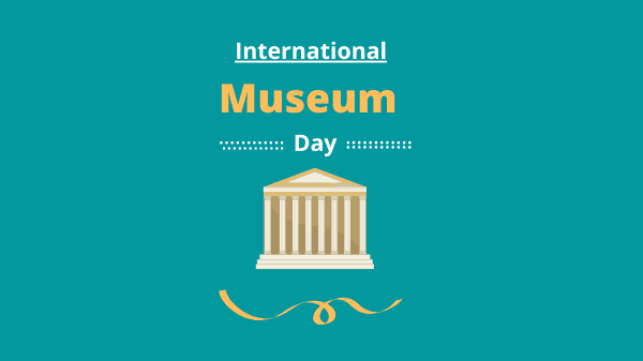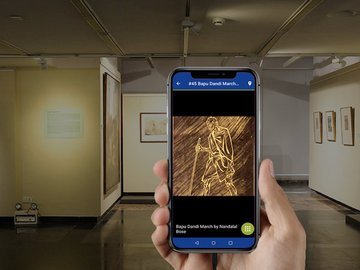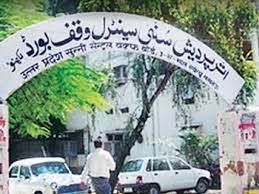Blog
May 19th Current Affairs
- May 19, 2021
- Posted by: admin
- Category: Culture Current Affairs Daily News Defense & Security Disaster Management Economy Education Environment & Ecology Ethics Geography Governance Health History International Relation Persons in News Polity Science & Technology Social Issues Sports Uncategorized UPSC Notification Videos
No Comments
1. International Museum Day 2021

IN NEWS:
Culture Ministry organises panel discussions on the occasion of International Museum Day 2021.
KEY HIGHLIGHTS:
- International Museum Day falls on 18 May every year.
- The objective of International Museum Day ,as declared by International Council of Museums(ICOM), is to raise awareness about the fact that, “Museums are an important means of cultural exchange, enrichment of cultures and development of mutual understanding, cooperation and peace among peoples.”
- The theme for International Museum Day 2021 is ‘The Future of Museums: Recover and Reimagine
- India is a storehouse of archaeological treasures and its cultural richness is world famous. However, what we may have lacked ,is excellence in showcasing our boundless culture in the manner it is done abroad .
- Museums play a pivotal role in showcasing our culture in different ways that interests people.
SOURCE:PIB
2. NGMA’s Audio-Visual Guide App

IN NEWS:
National Gallery of Modern Art launches Audio-Visual Guide App on the occasion of International Museum Day.
KEY POINTS:
- It will be possible for museum viewers to listen to anecdotes and stories related to the treasured Indian modern art exhibited at the Gallery, on smart phone, anywhere, anytime.
- The app is an audio-visual guide for exploring the modern art treasures on display across galleries of the Museum.
- The app is available on both the Google Playstore and the Apple Appstore.
- To listen to the narrations, users need to download the app and navigate the content using the numbers mentioned.
- The same numbers will be on display next to the art work at the Museum.
- A web version of the app is also available for those not keen to download the app and can be accessed by just scanning the QR code at location. The NGMA app and tours are free for all users.
- The museum tours are a rich mix of images, videos and voice.
- Aim :To enhance the viewing experience of the visitors at the museum and also enable one to ‘visit’ the art works virtually.
About National Gallery of Modern Art
- Founded :1954.
- Founded as the premier museum of modern art of a newly independent nation, the National Gallery Modern Art, New Delhi, houses and showcases masterpieces of the changing art forms of modern India spanning more than one hundred and fifty years.
- The museum continues to reaffirm its role as a repository of modern and contemporary visual, plastic and new media arts.
- The museum has a seminal collection of more than 2000 artists.
- The line-up includes artists of the of stature of Raja Ravi Verma, Abanindranath Tagore, Rabindranath Tagore, Gaganendranath Tagore, Nandalal Bose, Jamini Roy, Amrita Sher-Gil, Thomas Daniell, and a few leading international artists.
- Some of the oldest works preserved at NGMA date back to 1857. With 12,000 square meters of exhibition space, it is one of the world’s largest modern art museums.
SOURCE:PIB
3. U.P. Sunni Waqf Board

In news
- The Uttar Pradesh (UP) Sunni Central Waqf Board recently condemned the demolition of a mosque in Barabanki, UP and demanded its restoration.
- Key takeaways
- The UP Sunni Central Waqf Board is a body constituted under The Wakf Act, 1954.
- It manages the affairs of Sunni Muslim waqf (charity) properties, waqf institutions and the marriage records of the Sunni Muslim community of UP.
- It has been the main Muslim litigant in the Babri Masjid–Ram Janmabhoomi title dispute.
Important Information
- A waqf (also known as wakf or hubous) is an inalienable charitable endowment under Islamic law.
- It typically involves donating a building, plot of land or other assets for Muslim religious or charitable purposes with no intention of reclaiming the assets.
- The state waqf boards were established by the state governments in view of the provisions of Section 9(1) of the Wakf Act, 1954.
- India also has a Central Waqf Council to advise the government “on matters concerning the working of boards and the due administration of waqfs.”
SOURCE:TH
4. CUSTOMS (IMPORT OF GOODS AT CONCESSIONAL RATE OF DUTY) AMENDMENT RULES, 2021

IN NEWS:
- The Finance Minister had in her Budget Speech this year announced that the Customs (Import of Goods at Concessional Rate of Duty) Rules, 2017 (IGCR, 2017) would be amended to boost trade facilitation.
KEY HIGHIGHTS:
- The IGCR, 2017 lay down the procedures and manner in which an importer can avail the benefit of a concessional Customs duty on import of goods required for domestic production of goods or providing services.
- One major change that accommodates the needs of trade and industry is that the imported goods have been permitted to be sent out for ‘job work’.
- The absence of this facility had earlier constrained the industry especially those in the MSME sector which did not have the complete manufacturing capability in-house.
- Importantly, even importers who do not have any manufacturing facility can now avail the IGCR, 2017 to import goods at concessional Customs duty and get the final goods manufactured entirely on job work basis.However, some sectors such as gold, jewellery, precious stones and metals have been excluded.
- Another major incentive now provided is to allow those who import capital goods at a concessional Customs duty to clear them in the domestic market on payment of duty and interest, at a depreciated value.
- This was not allowed earlier and manufacturers were stuck with the imported capital goods after having used them as they could not be easily re-exported.
- Further, the procedure for availing the concessional Customs duty under these rules have been reviewed and rationalized.
- The required intimations and records can be sent by email to the jurisdictional Customs officer thereby obviating any physical interface.
SOURCE:IE
5. New Naming System For Virus Variants

In news
- The World Health Organization (WHO) would unveil a system of naming of coronavirus variants similar to the way hurricanes are named
Key takeaways
- The initiative seeks to remove stigma that gets attached to the country it was discovered in.
- It will also be easier for the public to remember rather than their lineage numbers
- Scientists refer to viruses and their variants by formal lineage names, which are a combination of letters and names that point to the relationships between different variants.
- Variants such as B.1.1.7 and B.1.617 suggest that they have certain mutations in common and provide clues to their evolutionary history.
- However, 1.1.7 started to be known as the ‘U.K. variant’ and B.1.351 as the ‘South African’ variant.
SOURCE:TH
6. New Storage Conditions For Pfizer-BioNTech Vaccine

In news
- The European Medicines Agency (EMA) has recommended a change to the approved storage conditions of the Pfizer-BioNTech COVID-19 vaccine
- Key takeaways
- With the new recommendations, an unopened thawed vial of the Pfizer-BioNTech vaccine can be stored between 2-8 degrees Celsius for up to a month, which means that it can be stored in a regular refrigerator once it has been taken out of the deep freeze.
- Before this, an unopened thawed vaccine vial could be kept in a regular refrigerator for a period of only up to five days.
Important Information
- mRNA vaccines need to be stored at much lower temperatures than some other kind of COVID-19 vaccines because RNA is much less stable than DNA
- RNA is less stable due to: (1) The sugars that their molecules are made up of are different. In DNA, it is deoxyribose and in RNA it is ribose; (2) It has single strand, while DNA is expressed as a double-stranded helix.
SOURCE:TH
